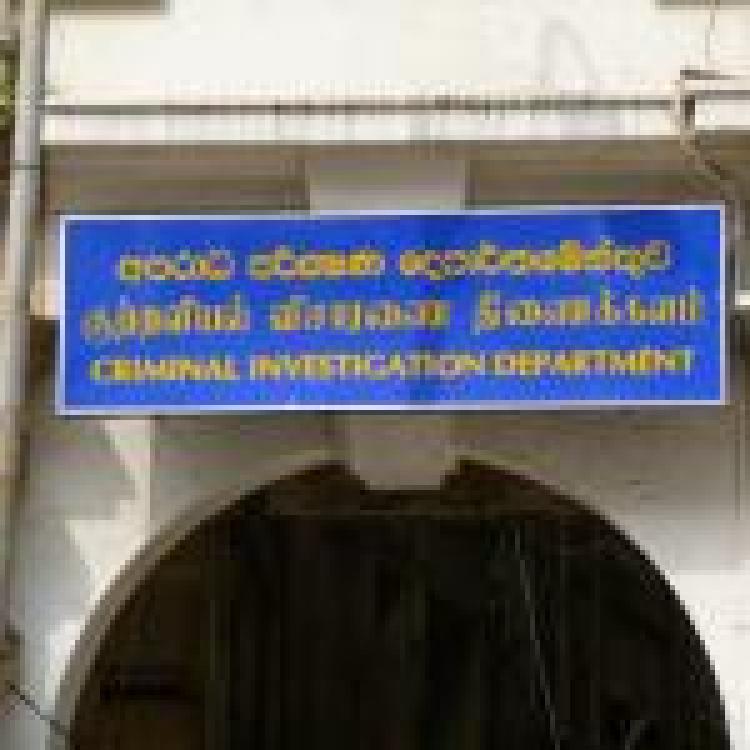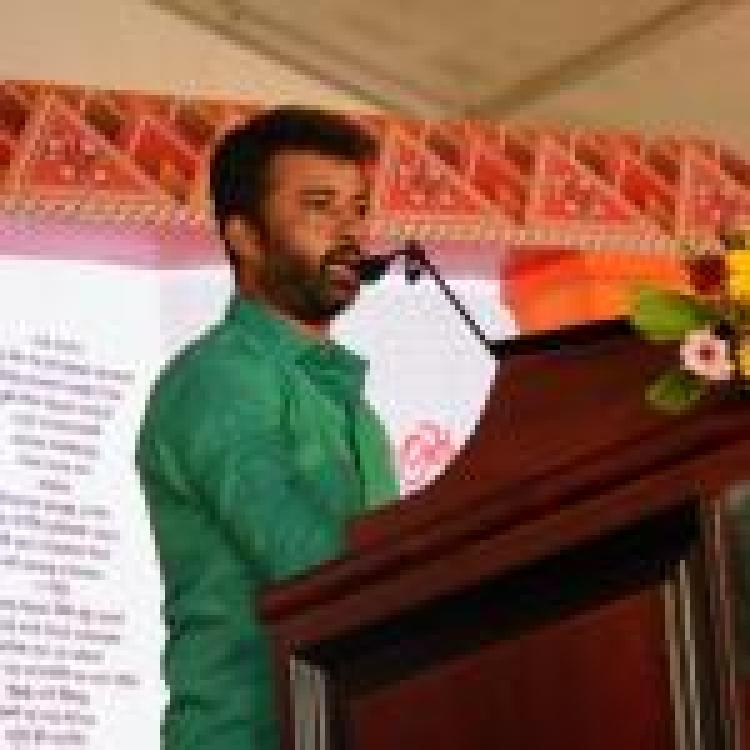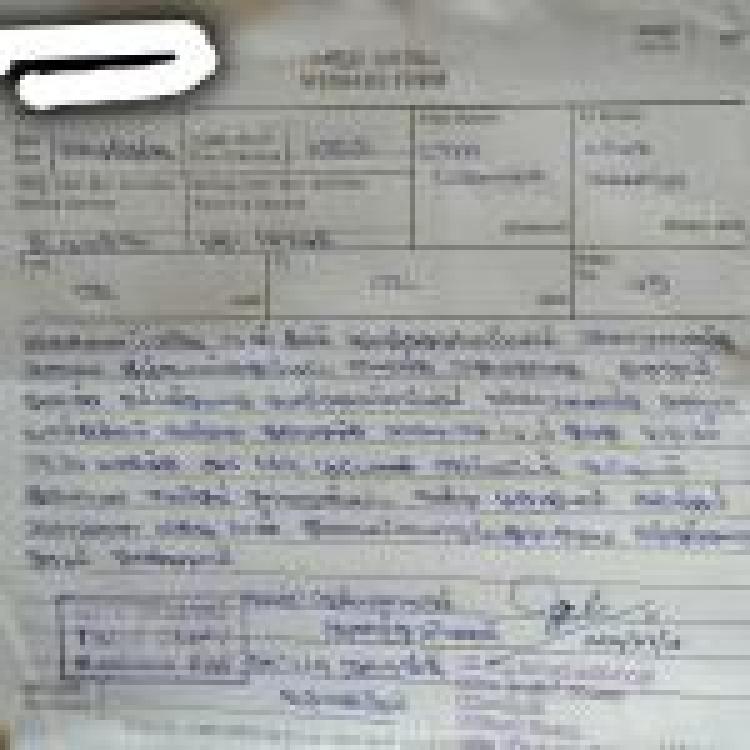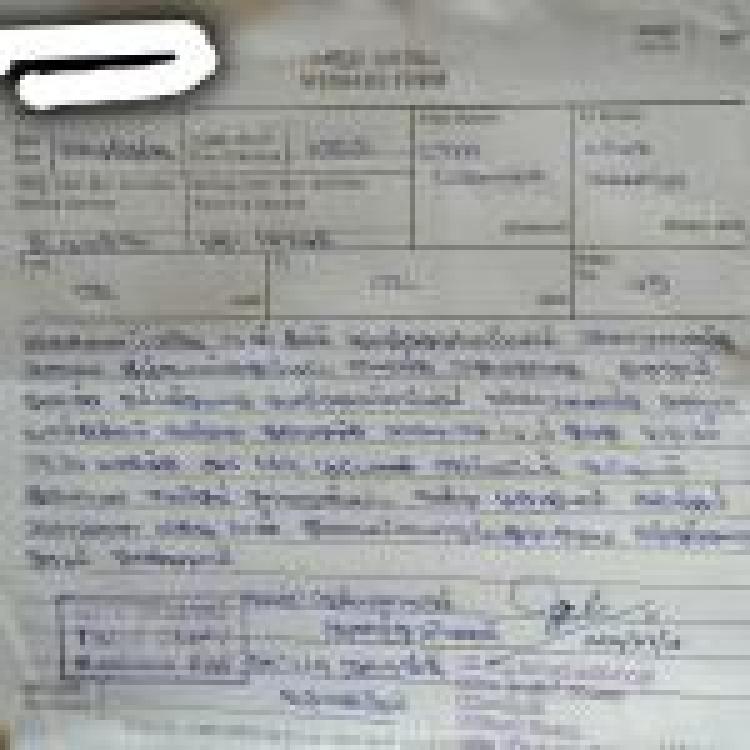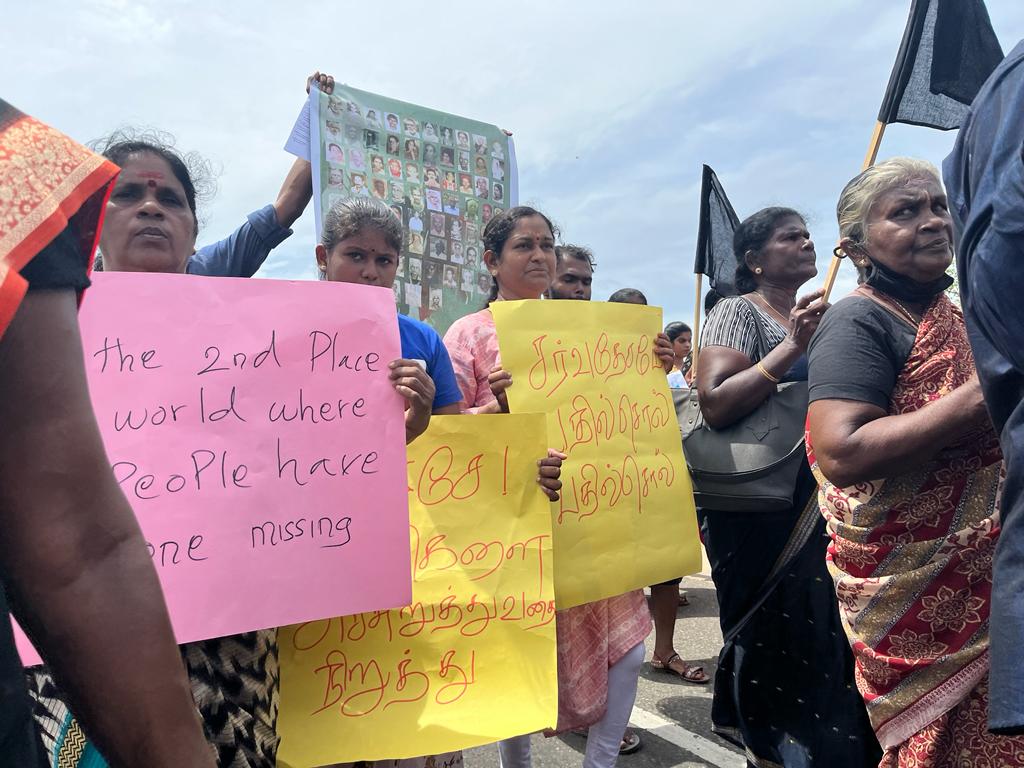
Sri Lanka's Terrorism Investigation Division (TID) has summoned the leader of the Tamil families of the disappeared in Batticaloa as surveillance of Tamil activists continues in the North-East.
Batticaloa Association of Relatives of the Enforced Disappeared leader Amalaraj Amalanayaki, has been instructed to go to the TID office in Kallady, Batticaloa on the 29th July 2024.
In 2017, Tamil families of the disappeared launched protests across the homeland, demanding to know the fate of their loved ones who were forcibly disappeared by Sri Lanka. Throughout their campaign, the Tamil families of the disappeared have been constantly subjected to threats, surveillance even violence by Sri Lanka's security forces.
Earlier this year, the Office of the UN High Commission for Human Rights released a report which detailed the harassment faced by the Tamil families of the disappeared.
"Intimidation was reported as being combined with court orders limiting the mobility of the relatives of disappeared persons or restricting their exercise of rights of peaceful assembly and freedom of expression, includin the right of access to information," the report stated.
During the last three months, the same TID summoned seven Tamil political activists in the North-East for questioning, a sign the state’s intimidation of activists and rights defenders continues.
Earlier in June this year, the former chairman of the Batticaloa district youth wing of Ilankai Tamil Arasu Katchi (ITAK), Lohitharaja Deepakaran, and the coordinator of the Tamil Youth People's Movement, Jeevarathinam Thaveswaran, were instructed to appear at the police office in Batticaloa on June 11 and 12, respectively.
This move was criticised by Tamil parliamentarians, including ITAK leader Sivagnanam Shritharan, where he tabled a letter addressed to Sri Lanka’s President Ranil Wickremesinghe during a recent parliamentary session. His letter, dated June 4, warns of a systematic plan to disrupt the daily lives of Tamils through targeted investigations and intimidations by the security forces, particularly focusing on political leaders in the Tamil homeland.
The intimidation of Tamil political activists has become routine across the North-East, where the Sri Lankan security forces maintains a massive military and police presence.

